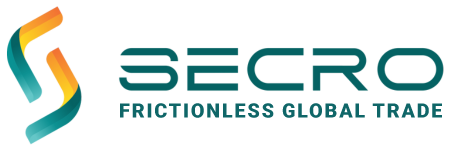Electronic Bill of Lading (eB/L) represents a significant evolution in the shipping and logistics industry, moving from traditional paper-based documentation to digital formats. This transition is not just about improving efficiency and reducing costs; it holds substantial potential for positive environmental, social, and governance (ESG) impacts. This white paper explores these impacts, focusing on the reduction of CO2 emissions and paper waste, and how these changes align with broader ESG goals.
Environmental Impact
CO2 Emissions Reduction
The shipping industry is a significant contributor to global CO2 emissions, not only through the operation of vessels but also through the ancillary processes, including the production, transportation, and disposal of paper documentation. The adoption of eB/L can lead to substantial reductions in CO2 emissions.
Data on CO2 Emissions Reduction
A study by the Global Shipping Business Network (GSBN) and consultancy SIA estimated that every electronic bill of lading could save 27.9 kg of CO2 emissions. With approximately 15.8 million paper bills used annually in the industry, this translates to a potential reduction of 440,820 metric tons of CO2 per year (Ledger Insights)
Additionally, electronic delivery orders used in GSBN’s cargo release application save around 16.9 kg of CO2 per shipment. In 2023, this led to a reduction of 20,428 metric tons of CO2 from 120,000 electronic bills of lading and one million cargo releases processed through the network
Paper Waste Reduction
Paper waste is another critical environmental concern addressed by eB/L. Traditional bills of lading involve extensive paperwork, with multiple copies required for different stakeholders.
Data on Paper Waste Reduction
- Volume of Paper Saved: A single shipment can involve up to 30 paper documents, totaling over 100 pages. By transitioning to eB/L, millions of shipments globally can significantly reduce paper consumption, potentially saving hundreds of thousands of trees annually
- Waste Management: Reducing paper use decreases the burden on waste management systems. One major shipping line reported a 75% reduction in paper waste after adopting eB/L, highlighting the significant environmental benefits.
Social Impact
Enhanced Efficiency and Transparency
The adoption of eB/L enhances operational efficiency and transparency, benefiting all stakeholders in the shipping industry. It facilitates faster document processing, reduces the risk of fraud, and improves traceability.
- Operational Efficiency: eB/L reduces the time and resources required for document handling, allowing for quicker turnaround times and improved supply chain efficiency.
- Fraud Prevention: Digital documentation with secure electronic signatures reduces the risk of document tampering and fraud, enhancing the overall security of transactions.
- Traceability: Enhanced tracking and traceability of documents improve accountability and trust among stakeholders, fostering better business relationships.
Workforce Development
The shift to digital documentation necessitates upskilling the workforce to handle new technologies. This transition can drive workforce development, creating opportunities for training and career advancement in the logistics and IT sectors.
Governance Impact
Compliance and Regulation
Adopting eB/L aligns with evolving regulatory requirements aimed at reducing environmental impact and enhancing corporate governance. Companies that embrace eB/L are better positioned to comply with international regulations and standards, such as the International Maritime Organization’s (IMO) guidelines and the European Union’s digitalization initiatives.
- Regulatory Compliance: Digital documentation ensures compliance with regulatory standards, reducing the risk of non-compliance penalties.
- Corporate Governance: Enhanced transparency and traceability improve corporate governance practices, fostering trust and credibility among investors and stakeholders.
Risk Management
eB/L improves risk management by providing a secure and tamper-proof system for document handling. This reduces the likelihood of disputes and legal issues related to document fraud or errors, thus enhancing overall risk management.
Conclusion
The transition to electronic Bill of Lading represents a significant advancement in the shipping and logistics industry with profound ESG implications. By reducing CO2 emissions and paper waste, enhancing efficiency and transparency, and aligning with regulatory requirements, eB/L offers a sustainable and forward-thinking solution for the industry. The data on emissions and waste reduction underscores the tangible environmental benefits, while the social and governance impacts highlight the broader positive effects on stakeholders and corporate practices. Embracing eB/L is not only a step towards operational excellence but also a commitment to sustainable and responsible business practices. By adopting eB/L, the shipping industry can make a substantial contribution to global ESG goals, setting a benchmark for other sectors to follow in the pursuit of a more sustainable future.
Appendix
Table: Positive Environmental Impact of eB/L
| Metric | Value per eB/L | Annual Total Savings (Industry-wide) |
| CO2 Emissions Reduction | 27.9 kg | 440,820 metric tons |
| Paper Waste Reduction | 100 pages | Hundreds of thousands of trees saved |
| CO2 Savings from eDOs | 16.9 kg | 20,428 metric tons (2023) |
Sources:
- GSBN quantifies massive CO2 emission savings from electronic bills of lading, Ledger Insights (Ledger Insights)
- GSBN blockchain: now or never for digitizing shipping, Ledger Insights (Ledger Insights)

